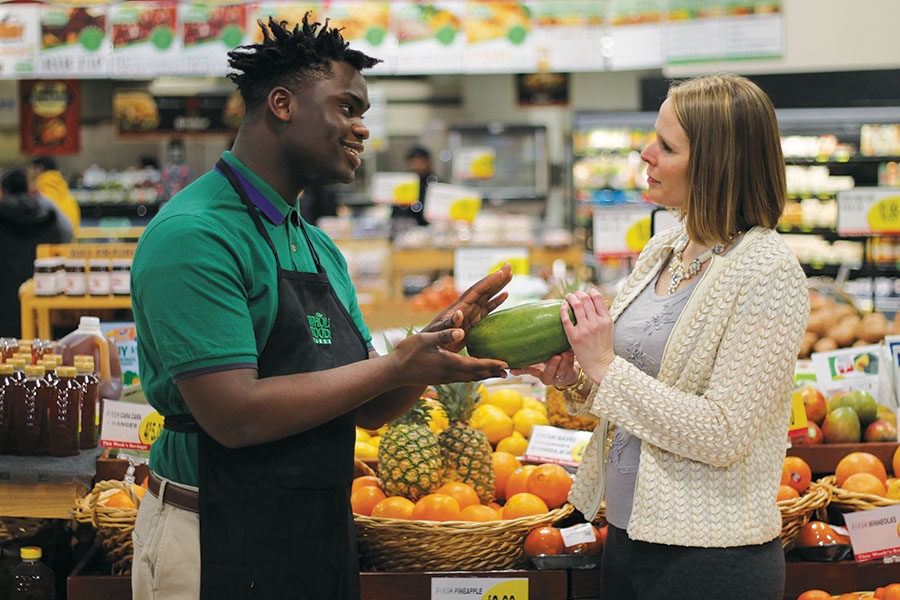In 2001, the United States resettled 3,600 “lost boys” in cities across the country.
Ten years earlier, these boys had walked 800 miles from Sudan to escape civil war, landing in Kenya. There, many of the boys ate nothing but grain every day.
“Lost Boy in Whole Foods,” coming to Kalamazoo Civic Theatre, examines the aftermath of this real-life story. Kevin Dodd, director of the play, said he gravitates toward theater that’s thought-provoking and related to contemporary issues that make people question their world and what’s in it.
“‘Lost Boy’ deals with refugees’ issues and people who are trying to come to terms with people from very different backgrounds because of the huge influx of refugees from Syria,” Dodd said.
“The dynamics are very similar to what people are faced with when they’re forced out of their country because of war (today). A lot of these young men were told go to the United States and get an education so they could send money back home or return to their native Sudan to help with rebuilding efforts.”
The play tells the story of the recently divorced Christine, who meets Gabriel, a former “lost boy” working in the produce section of Whole Foods. Moved by his story, she offers to help, inviting him to live with her and Alex, her teenage daughter. Gabriel’s world becomes enmeshed with his American hosts — leading to an unexpected journey of awareness, struggle and hopefulness — and what can happen when we open ourselves up to help another human being.
“It’s thinking about how people in United States who have a certain amount of privilege and means and live without that level of violence connect with the refugees and people who are from vastly different backgrounds with different experiences,” Dodd said. “When you’re trying to help someone else, what does that say about us and why are we doing it? (It’s about) who are we really doing it for and what it really means.”
The relationship between Christine and Gabriel begins when he offers her a sample of papaya. From there, she embarks on a journey to figure out what exactly it means to help somebody.
“Gabriel is enrolled in community college trying to get the education he wants, but he has to work,” Dodd said. “The way he’s dealing with it is contrasted with the way his friend, Panther, is dealing with it. Panther really tries to assimilate into the African American culture by embracing rap music and in his choice of dress and demeanor.
“Gabriel wants to maintain his Sudanese background.”
To prepare for their roles, the six-member cast devoted a lot of time to discussing what happened in Sudan and also watched the movie “The Good Lie” about the Lost Boys and what they went through.
“I’m pretty lucky to have a group of people who are pretty aware of the world or interested in learning,” Dodd said of his cast. “They said they had very little idea of what happened with the lost boys. They started wondering why we don’t know more about the plight of people around the world.”
Given the dark and tragic nature of the subject matter, it would be very easy for the play to take a downward trajectory. Instead, it highlights the levity, humor and ways of surviving that aren’t as heavy.
“It’s about a topic that could get potentially heavy and depressing, but to find the ways people live after these experiences is very inspiring,” Dodd said. “It’s an extremely compelling play and very approachable. I hope audiences start to think about their own relationship to other people and how they interact with people who are different than them.”
Lost Boy in Whole Foods
Kalamazoo Civic Theatre
329 S. Park St., Kalamazoo
April 6-22
kazoocivic.com





